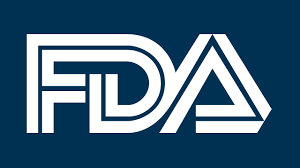As guidelines for the Drug Supply Chain Security Act (DSCSA) continue to come out, various questions have been raised as to the Food and Drug Administration’s (FDA) definitions of “trading partners.”
The DSCSA will require that trading partners in the drug supply chain – which include repackagers, wholesale distributors, manufacturers, and dispensers – be able to provide certain product tracing information in order to become authorized to operate in the industry. There has been a substantial amount of confusion as to how the definitions of trading partners have changed due to the DSCSA, however. In addition, confusion exists about whether or not the DSCSA regulations will apply to various types of professions like brokers, solution providers, and certain types of contractors.
In response to the confusion, the FDA released a supplemental document to clarify the definitions.
According to the FDA, an entity is considered to be under the jurisdiction of the DSCSA if it “meets the statutory definition of a particular trading partner that would trigger the applicable requirements depends on the activities in which it engages.”
Let’s take a closer look at what these mean for each of the five trading partners discussed in the guidance document.
Manufacturers as Trading Partners
The DSCSA’s definition of a manufacturer as a trading partner can be found in section 581(10) of the Federal Food, Drug, and Cosmetic Act (FD&C), which defines a manufacturer as any entity that holds an approved application or license to manufacture drug products.
The FDA argues that the confusion over the definition of manufacturers stems from that fact that entities that have drug approvals – like co-licensed partners and affiliates of entities defined as a manufacturer under section 581(10) – are required to register under section 510 to be seen as “authorized.”
The FDA has since clarified that manufacturing establishments refer to, with limited exceptions, any person or group which prepares, manufactures, compounds, propagates or processes drugs. Such entities much register under section 510. This also applies to any affiliates of manufacturers, but only if the affiliate legally controls or is controlled by a manufacturer, either directly or indirectly.
Repackagers as Trading Partners
Repackagers are now defined as “a person who owns or operates an establishment that repacks and relabels a product or package for – (A) further sale; or (B) distribution without a further transaction” in the DSCSA.
The FDA has also said that the definition of trading partner, which is found in section 581, includes repackagers, and that all repackagers must comply with section 510 to be recognized as legitimate trading partners.
In addition, the FDA expanded upon these definitions and clarified that dispensers that are solely involved with the labeling and packaging of drug products will not be classified as a repackagers, and are therefore not subject to the requirements found in section 582(e) of the FD&C Act.
Third-Party Logistics Providers as Trading Partners
Third Party Logistics Providers (3PL) are now considered new entities in the drug supply chain. Since they only provide logistical services and don’t actually take ownership of drugs or products, however, they are regulated differently than other trading partners. What this means is that 3PL facilities must be separately licensed and regulated from wholesale distributors.
The new guidance released by the FDA states that 3PLs that:
- Don’t accept shipments or in any way shift the possession of products
- Aren’t considered trading partners
- Do not have to adhere to the authorized trading partner provisions of section 582 of the FD&C Act when engaging with other entities.
However, 3PLs are prohibited from engaging in any activity in any state unless their facilities are licensed by the state from which the 3PL distributes the drug, and in certain circumstances the 3PL must get a license from the state which they are distributing the drug to. They must also deliver certain types of information to the FDA, including information about their state licensure.
Wholesale Distributors as Trading Partners
The new DSCSA definitions defined wholesale distributors as entities that distribute a drug or product to a person other than the direct consumer or patient for whom the drug intended. This is a change from how the FD&C Act previously defined wholesale distributors. Due to the new definition for wholesale distributors, many companies that were previously defined as wholesale distributors are now considered 3PLs. In addition, the FDA has clarified that a manufacturer cannot be considered a wholesale distributor, because they are distributing their own drug and not another entity’s drug.
If an entity distributes a drug to someone other than a customer or patient, and is not covered in the above exceptions or the exceptions found in section 503(e)(4), it is subject to all wholesale distributor requirements of the DSCSA.
Dispensers as Trading Partners
The FD&C defines a dispenser as a pharmacy, or any other entity authorized to dispense or administer prescription drugs for humans, which doesn’t function as a wholesale distributor. This definition categorizes distribution centers and dispenser-affiliated warehouses as dispensers, which is a big change considering they were previously not classified as such.
According to the new published guidelines, dispensers are not required to provide information regarding product tracing at the time of a transaction or prior to it, as long as the transaction is only dispensing a product to a patient. The same holds true if one dispenser is selling to another dispenser for patient-related needs.
The changes to the five trading partner categories have been somewhat confusing, but hopefully the new guidance document will help you make sense of the changes. Even with the added clarification given by the FDA, however, it’s important to thoroughly review the literature regarding the new DSCSA requirements to make sure your company is in compliance.
About TrackTraceRx Suite
Other solutions on the market today are totally fragmented by only providing one piece of the puzzle. Pharmaceutical companies today are stuck subscribing to multiple services, accessing different companies for support and paying thousands of dollars to integrate different systems. The TrackTraceRx Suite is a game changer by combining the TrackTraceRx Traceability Solution, a ERP, and a Commerce Platform completely integrated out of the box. This eliminates having to deal with multiple support, feature services and integration costs.




